Transitional Eating Disorder Support

How does virtual transitional eating disorder support close the gap? Picture this. It’s your final day at an eating disorder treatment center. For the last few months, you’ve lived in a highly structured environment with daily meal support, group therapy, individual counseling, and the camaraderie of other patients who share your struggles.
Now, you are faced with implementing the skills you have learned while adjusting back home. Finances may be tight. You might reconnect with family and friends who do not understand your concerns. You will likely return to existing responsibilities and new stressors, all while dropping down to just one therapy session a week – if that.
This is the reality for many individuals graduating from treatment programs all over the country. With such a high-stakes transition, it is no surprise that readmission rates are high.
Transitional Eating Disorder Support Closes the Gap
“As a registered dietitian who has worked in the eating disorder field for many years, I have never seen a program that offers this type of support at such an accessible cost. The Virtual Transitional Living Program is unlike other programs in the sense that it provides necessary support facilitated by skilled professionals from across the country, in between treatment appointments,” says Bella Largin, MS, RDN.
The Kirsten Haglund Foundation’s Virtual Transitional Living Program (VTLP) exists to fill an all-too-common gap in eating disorder support. It is easily accessible, affordable, and tailored to individuals’ unique needs as they adjust back to daily life.
Accessibility
“What truly sets this program apart is its unwavering commitment to extending a lifeline of hope to those who might otherwise lack the resources to access care,” says Sarah Thom, RN, BSN, CCRN and Certified Eating Disorder Recovery Coach.
The program is completely virtual, accessible to individuals everywhere. This is intentional because countless individuals leave treatment without a proper outpatient team in place. For many, simply no professionals specialized in eating disorders are available within a reasonable radius. Our program fills that gap.
Affordability
There is a big misconception that only affluent individuals struggle with eating disorders. The reality? Eating disorders do not discriminate based on socioeconomic status, or any other demographic. Therefore, a full week of programming at the VTLP costs about the same or less than one typical therapy session. We also offer scholarships, as we do not wish to turn individuals away based on their inability to pay.
Virtual Transitional Living Programming
Our multidisciplinary team knows the unique challenges individuals with eating disorders face as they transition to lower levels of care. Each component of our program is designed to support a specific facet of recovery.
Eating Disorder Recovery Coaching
Our Eating Disorder Recovery Coaches are central to the mission of the Virtual Transitional Living Program. Our coaches are certified through the Carolyn Costin Institute (CCI), the gold standard for Eating Disorder Recovery Coaching, and regularly engage in continuing education and peer supervision. Training is based on Costin’s 8 Keys to Recovery, which details step-by-step strategies for recovering from an eating disorder.
Coaches meet weekly with each program participant for one-on-one coaching sessions. In therapy, sessions may focus on underlying mental health concerns. Whereas coaching sessions address active behaviors through structured goal setting and real time support through texting.
Coaches are trained to collaborate regularly with participants’ treatment teams to ensure consistency in care coordination. Our program is committed to staying within our scope of care and is not a replacement for treatment.
Eating Disorder Meal Support
“Disordered behaviors including: picking apart food items, difficulty plating adequate portions and struggling to complete a meal within a reasonable time frame are common challenges that can be redirected in meal support to assist in establishing normalized behaviors at mealtime,” says Laura Griffin, RD, Associate Director of Nutrition for the VTLP.
Often meal support is reserved for treatment centers and recommended only for individuals struggling with severe symptoms. However, we believe that meal support is beneficial at all levels of eating disorder care. For example, people struggling with anxiety or intrusive thoughts can make normal mealtime conversations challenging. This can be addressed in a meal support group.
Faith-based Eating Disorder Support
“Beyond conventional services like meal support and other support groups, we believe in empowering individuals to discover their ‘why’ and purpose on their journey to freedom. We provide a vital sense of hope and spiritual nourishment. This cultivates a truly holistic care model, which is often a missing link in healing,” adds Megan Becker, MPH, RD.
Our program recognizes that faith and spirituality are critical components in the healing process. Our team uses Costin’s Key 8 “Finding Meaning and Purpose” as a guide to help participants probe into the deeper aspects of recovery. Questions like “What gives you hope?” “What do you value?” and “What is sacred to you?” help participants connect with themselves on a soul level. Soul care is an often-neglected component of comprehensive healing.
For participants seeking Christian-based support, we offer a weekly prayer support. Likewise, our staff welcomes holding participant prayer requests in their hearts as they move through weekly programming.
“Prayer Support gives participants the opportunity to bring their faith into their recovery by learning how to turn to God for rescue and inviting Him to transform their hearts. Adding this dimension brings another level of hope and healing to recovery. It’s also an opportunity to spend time praying over whatever concerns participants are facing,” says Jennifer Lane, Certified Eating Disorder Recovery Coach and author of Transformed: Eating and Body Image Renewal God’s Way
Community Support Group
Iora Haglund, President of the Kirsten Haglund Foundation, shares that many individuals write the foundation desiring a continued supportive, family-like environment after treatment. We provide this opportunity for intentional connection and support through our Community Support Group.
Recovery Skills Workshop
Recovery Skills Workshops are more structured groups where participants learn tangible recovery-focused skills such as:
- challenging their eating disorder thoughts
- responding to diet talk
- navigating grocery and clothes shopping
- cooking and plating skills
- body image acceptance
- any many more
Our staff often tailors workshop topics weekly to the unique needs of our participants.
Our “Why”
Every member of our talented team of registered dietitians, registered nurses, therapist, and certified coaches care deeply about our mission. We are dedicated to providing affordable, accessible support to individuals committed to recovery.
We are especially grateful to our current and former participants, who have shown up for themselves in the fearless pursuit of a life free from this serious disorder. From all of us at KHF, we believe in you, and recovery is possible.
About The Author – Melissa Bolton, MA, LPC
Melissa is a Licensed Professional Counselor specializing in eating disorders and Director of the Kirsten Haglund Foundation’s Virtual Transitional Living Program (VTLP). As Director of the VTLP, Melissa develops programming, oversees day to day operations, coordinates with participant treatment teams, and provides consultation to VTLP staff. As a therapist at MYBody, PLLC, Melissa works with teens and adults with eating and body image concerns, as well as co-occurring conditions. She has provided counseling in a variety of settings including community mental health, sexual assault recovery, and university counseling. Her passion for holistic healing inspired her to become trained in EMDR and a Certified Yoga Teacher.
